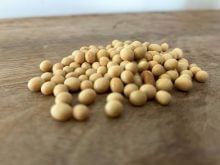A pedigreed seed grower from Delisle, Sask., has agreed to pay restitution of $120,000 for his involvement in the illegal sale of seed protected under plant breeders’ rights.
SeCan announced today that it has resolved a legal action against Leonard Junop and Junop Bros. Seed of Delisle, about 30 minutes west of Saskatoon.
The case involved the illegal sale of two PBR protected malt barley varieties: AC Metcalfe and CDC Copeland.
“Protection of our plant breeding partners’ intellectual property is something we take very seriously,” said Todd Hyra, western Canadian business manager for SeCan.
Read Also

Lending policy still focused on primary producers: FCC
Farm Credit Canada said it has not changed its business practices and remains committed to supporting all producers, after a report from an Ottawa-based media outlet claimed otherwise.
The resolution includes a declaration by Junop that the defendants will cease any further sales of SeCan’s protected varieties and make a cash payment of $120,000 to cover financial damages.
The money will be used to pay royalties that are owed to the respective plant breeding institutions.
The balance will be invested in future variety development.
SeCan works with the Canadian Plant Technology Agency (CPTA) to identify possible cases of PBR infringement, investigate and take legal action against those involved in illegal seed sales.
Under PBR regulations, grain producers are allowed to save their own seed for replanting on their own farms or selling into the commercial grain handling system.
They are not allowed to sell the seed to other growers or trade it.
“Even after 20 years of PBR being in effect in Canada, a large part of the process is still education,” said Lorne Hadley, CPTA’s executive director.
“But when an individual or organization willingly seeks to profit from the illegal sale of a protected variety, CPTA member companies will take the necessary steps to enforce PBR.”
SeCan, an association of more than 700 private independent seed businesses, seeks to enhance Canada’s plant breeding capacity through public-private partnerships.
Protection of intellectual property rights through PBR plays a important role in encouraging investments in plant breeding and bringing new crop varieties to Canadian growers.
“In order for Canadian agriculture to remain competitive, we must continue to support the brightest research scientists, and expand our ability to deliver cutting-edge varieties and traits,” said Hyra.
“We can’t afford to erode our returns to plant breeding,” added Hadley.
“As a seed industry, we need to ensure our plant breeders are rewarded for the value they create.”















